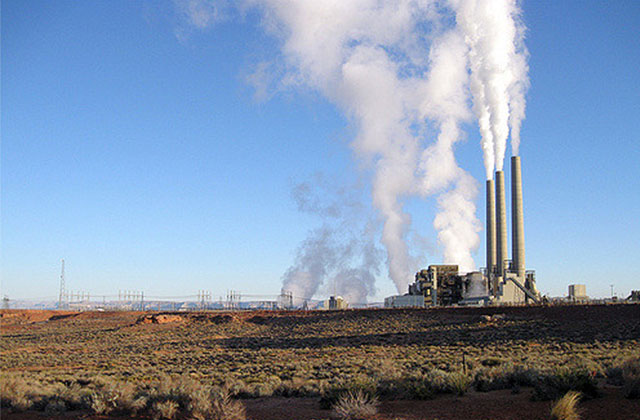The Navajo Nation Council’s Resource and Development Committee voted 3-2 yesterday (June 6) to endorse tribal legislation that would keep the coal-fired Navajo Generating Station in Arizona open until the end of 2019.
The plant, along with its accompanying Kayenta Mine, makes up over 30 percent of the tribe’s annual revenues. Most of the plant and mine’s employees are Native, from both the Navajo Nation and Hopi Tribe. But health and environmental concerns kept Councilmember Jonathan Perry from voting in favor of the legislation, per a council statement on Facebook. Perry would rather see the Nation invest in other energy sources, though the types weren’t specified in the statement.
This vote comes just a day after the Health, Education and Human Services Committee voted 2-1 in support of the legislation. One more committee, on Budget and Finance, is set to vote on the legislation today (June 7) before it goes to the full council. It would require two-thirds approval (or 16 votes) to pass.
The tribe introduced the legislation May 24. It calls to extend the lease until December 22, 2054, as part of the decommissioning or “retirement” process. The legislation, which was negotiated between the tribe and the plant’s owners, also calls for the tribe to take ownership of a lake pump facility and a railroad track and related facilities to aid in operating the coal plant.
The Navajo Generating Station is one of the largest coal plants on the West Coast, and its utility owners—Salt River Project, Arizona Public Service Co., NV Energy and Tucson Electric Power— are closing the plant due to the rapidly changing energy market, which is seeing natural gas prices plummet, making coal less economically viable.
The owners voted in February to extend this lease once parties came to an agreement, as Colorlines has reported. The tribal legislation is part of that effort, but the utilities are putting pressure on the tribe to finalize a lease by July 1 so that they can end their role in the plant and move on toward other energy investments, according to The Arizona Republic. Otherwise, the group will shut down the plant by the end of this year to tear it down by 2020.
If the Navajo succeed in extending the lease, the tribe will still have to deal with financial hurdles. The plant is not likely to be profitable, as The Arizona Republic has reported, and it will require about $132 million in routine maintenance.
The Navajo Nation is accepting public comment for the legislation via [email protected] before the full council votes on a not-yet-determined date.
